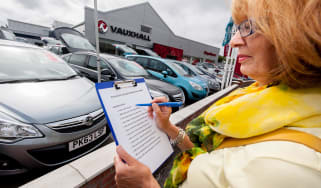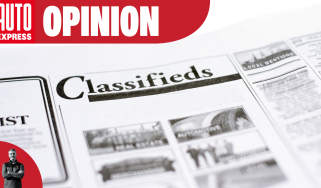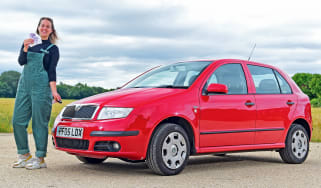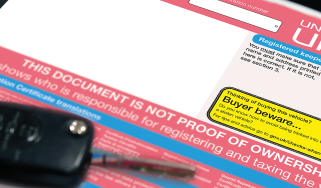Should you buy or lease your new car?
Is it better to buy or lease a new car? We’re here to guide you through the benefits of each to help you decide

More than 90% of UK buyers use a form of finance to buy a car, with Personal Contract Purchase (PCP) and Hire Purchase (HP) traditionally dominating the market. However, in recent years, leasing, often known as Personal Contract Hire (PCH), has gained popularity. So, should you buy or lease your next car?
The most common form of car leasing differs from a PCP car finance agreement in one key area: rather than offering you the chance to buy the car at the end of the term or use any built-up equity to start a new finance deal on a new car, a PCH agreement requires customers to return the car at the end of the term. With a car lease deal, there is no option to own the car.
Leasing is also more rigid than PCP. PCH customers are locked into their leasing contract for the term, with no legal right to leave it ahead of time. It is possible to arrange early termination of a lease deal with the lender but there are likely to be financial penalties for doing so. For this reason, it’s crucial to make sure that leasing fits your needs before signing up for a deal.
Although PCH deals won’t be right for everyone, one look at the savings on offer gives a good indication of what is convincing people to make the switch. If your main priority is low monthly payments, leasing can look very attractive.
How does car leasing work?
Leasing is a lot like other types of car finance, but there are some key differences that make it stand out. You’ll sign a contract, typically with an upfront payment, followed by fixed monthly payments across the term of the contract. When the lease comes to an end, the vehicle will be returned to the dealer, where it’s usually sold on to someone else.
In essence, car leasing works on the same principles as PCP finance. Both are residual-value products, meaning the monthly payments are calculated based on how much the car is expected to lose in value over the agreed term. With PCP, you borrow the cost of a car’s estimated depreciation over an agreed term. The amount a car is predicted to be worth at the end of a PCP deal is known as its guaranteed minimum future value (GMFV), and the difference between the car’s current value and the GMFV is used to calculate the monthly payments.
To give an example, let’s say a car costs £20,000. After three years, data suggests that the car would likely depreciate to approximately £10,000. The lender doesn’t set the GMFV at £10,000, but would likely set it lower – say £8,500 – to give a buffer for changes in the car’s predicted market value. This process determines what the monthly payments on the deal are.
What are the advantages of leasing a car?
One of the most obvious benefits of leasing is that the monthly payments are often lower compared to other finance options. This is because you’re effectively renting the car from the lender for the duration of the deal. Unlike with PCP, you're not building up any equity in the car and you won’t be given the chance to own the car outright at the end of the agreement. This means you don’t have to worry about the risks of taking ownership of a depreciating asset.
Leasing deals can also include various extras like routine maintenance, taxes and even insurance. In some cases, you can get a comprehensive leasing deal where all your motoring costs are covered in one tidy, predictable monthly payment. This makes budgeting easier and ensures you’re not hit with unexpected costs down the line.
Leasing can also be arranged over a variety of different time frames. Agreements typically last for two or three years as you would expect with other kinds of car finance, but short-term car leasing deals are also available which can get you a car for a matter of months.
In short, car leasing is a great option if you like to swap your car every two or three years for a new one. If you like the sound of minimal maintenance costs, lower monthly payments than typical finance options, and don’t mind never actually owning the car outright, then leasing could be for you.
What are the disadvantages of leasing a car?
Car leasing isn’t completely without its flaws; there are a few drawbacks to be aware of. Building equity is a key advantage that PCP deals offer over leasing deals. At the end of the agreement that equity can be crucial to purchasing your next car, with potentially thousands of pounds available to you. That could significantly reduce your next car’s monthly payments.
You won’t be able to make use of any of that potential equity with a PCH lease deal when the agreement comes to an end. That is because with a lease, you don’t build any equity within that agreement. If you end up having paid off more than the car has depreciated over the course of the contract, that money is gone. It just means more money in the pocket of the dealer or lender when selling the car to a new owner.
As we’ve already established, you’ll never actually own the car outright with a leasing deal, but that doesn’t mean you don’t have to look after it. You can incur financial penalties when you hand back your leased vehicle if you have exceeded the mileage limit on the contract or if it is in poor condition. It’s always worth reading the small print of any finance agreement carefully and checking for potential fees and charges before you sign.
You can lease used cars, but the majority of leasing agreements are on brand new vehicles with a full manufacturer’s warranty. Most lease companies will allow you to lease a used car up to a maximum of four years old at the end of the agreement. So when considering a used car, you may be restricted to a three-year lease if the car is a year old, or a two-year lease if it’s two years old and so on. It’s important for anyone leasing a used car or seeking to extend a lease deal with their lender to be aware of when the warranty expires. Once there’s no manufacturer’s warranty on a car, it’s much more likely that you could be landed with bills if things go wrong.
In summary, if you like owning your car outright or having the option to buy the car when a finance deal is concluded, then leasing a car may not be the right move for you. If you prefer to keep your cars for a long time or worry about mileage limits, it’s probably best to avoid leasing a car and choose a finance deal that better suits your needs.
What about bank loans and hire purchase?
Personal bank loans, and hire purchase (HP) agreements represent a small percentage of new-car finance purchases. In these agreements, customers pay off the car completely with the monthly payments, with no larger optional final payment at the end of the term.
While this may not be a finance option most people choose, a meaningful number of people still opt for these routes due to the desire to own the car outright. If that’s important to you, you may well decide to take out an HP agreement or bank loan to ensure the car ends up legally belonging to you.
When considering these two options, there are a couple of things to consider. If you can afford half the car already, a bank loan may be suitable, but it has become a less popular product over the past 30 years.
However, if you go for a secured lending product like HP or PCP, it comes with a lot more consumer protections. There’s lower risk with a secured product, so generally speaking, the lender will be able to offer you a lower interest rate.
Buy a car with Auto Express. Our nationwide dealer network has some fantastic cars on offer right now with new, used and leasing deals to choose from...
Find a car with the experts










